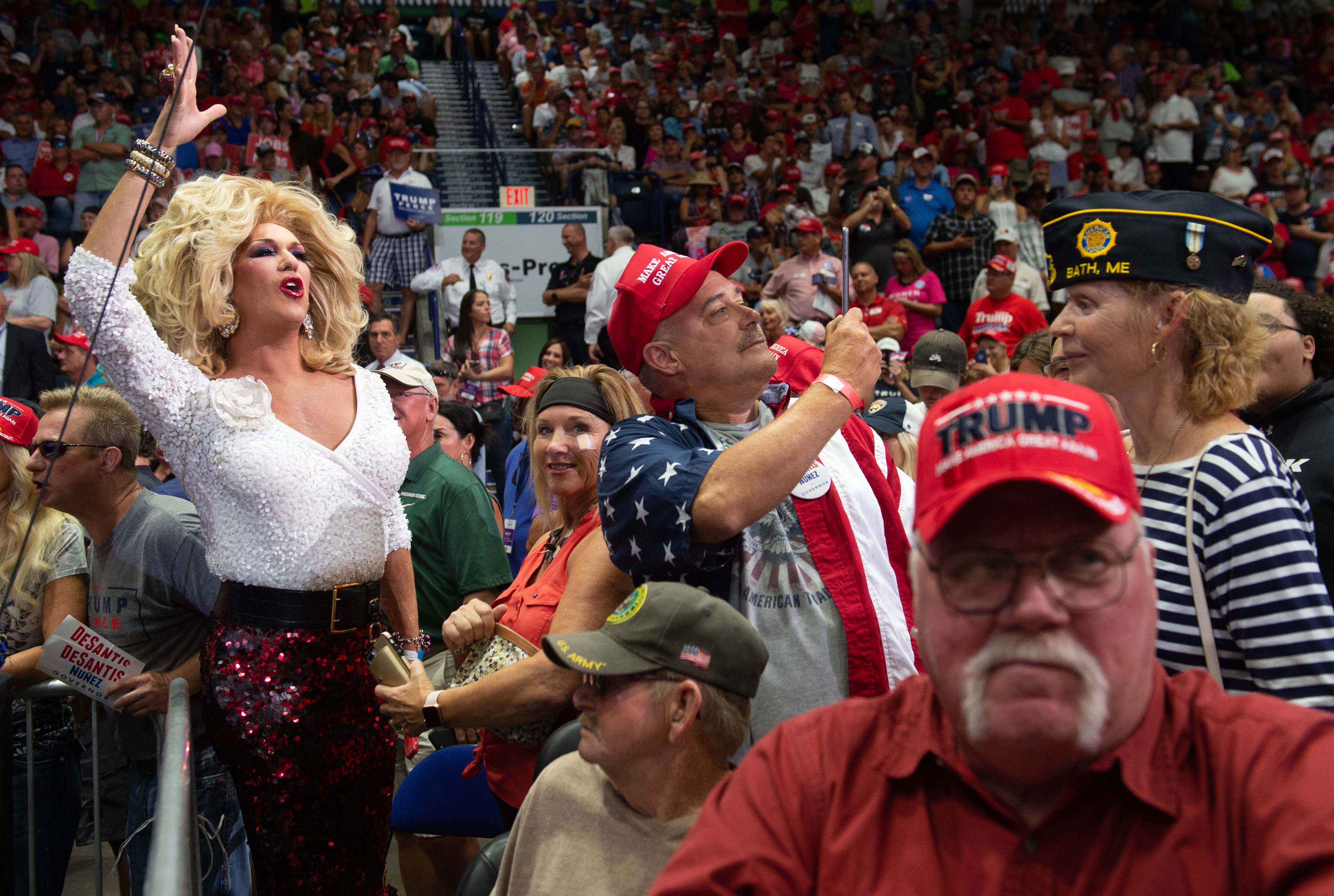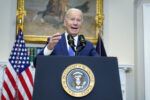In US midterm race, racial tensions never far from surface
Mostly white supporters cheer as Donald Trump addresses a campaign rally in Estero, near Fort Myers, Florida, on October 31, 2018 (SAUL LOEB)
Miami (AFP) – In a sea of white faces at a Florida campaign rally stirred to a froth by President Donald Trump, a woman named June and two friends stand out: they are among just a handful of black people cheering for him.
Although he is not on the ballot, Trump’s polarizing presence has loomed large over the campaign for Tuesday’s midterm elections, and in many ways the US political landscape reflects the deep racial divisions manifested recently in deadly attacks in Pittsburgh and Kentucky.
As the president’s rallies have thrown the spotlight on his overwhelmingly white support base, on the Democratic side rising African-American stars have pulled in heavyweight support from the likes of Oprah Winfrey and Barack Obama, who was stumping for Florida’s Andrew Gillum on Friday.
Trump himself — who infamously pushed the falsehood that the country’s first black president was not born in the United States — stands accused of driving Americans ever further apart, with almost eight in 10 black people surveyed by Quinnipiac in July judging that he is racist.
His white supporters among the adoring crowd in Estero, Florida were not convinced.
“No, he’s not racist. I give everybody the benefit of the doubt,” one supporter, who gave her name only as June, told AFP. “But all I know, what he stands for is America, making America great again and that’s what I stand for.”
The vast majority of the 8,000-odd people at last Wednesday’s rally in the southwestern tourist town of Fort Myers — where attendees shouted things like “CNN sucks” and “build the wall” — were white.
There were even white people wearing T-shirts with the slogan “Blacks for Trump.”
Many of the tiny minority of black faces in the crowd were there to sell Trump paraphernalia as the president rallied support for Republican candidates.
– Deepening divisions –
The final stretch of the campaign has been marred by the murder of two African American grocery shoppers in Louisville, Kentucky — shot dead by a white gunman in what police say was a racially-motivated attack.
Their deaths came days before an anti-Semitic massacre in Pittsburgh that left 11 dead and as a spate of mail bombs sent to high-profile liberals was fueling a national reckoning over deepening political and racial divisions.
Stacy Pignatti, a 46-year-old white supporter in Estero, pins blame on Obama — America’s first black president — for the fraught state of race relations in the country.
“It never was like that way before. When Bush was in here, we didn’t have the racial tensions that we have now,” she told AFP.
But Trump’s detractors accuse him of fuelling hate through his bitter and divisive rhetoric.
The president has tarred Mexican immigrants as “rapists,” sought to ban Muslims from entering the country, and assailed the mostly-African American footballers who knelt during the national anthem to protest police brutality.
His failure to squarely condemn last year’s deadly white supremacist rally in Charlottesville, Virginia was widely judged to have emboldened the country’s far-right, racist fringe.
“The environment today is absolutely a function of Trump and Obama, the way the discourse has gone, the way people talk about race now,” said Senator Perry Thurston, a member of the black caucus in the Florida state legislature.
“It’s a touchy subject. And it’s painful. But it’s good to get it out in the open to talk about these issues,” he told Politico.
Against this backdrop, Gillum in Florida, Stacey Abrams in Georgia and Ben Jealous in Maryland — all Democrats with agendas at the left end of the party spectrum — are vying to become their states’ first black governors.
“Black progressive candidates are betting that Trump’s high disapproval rating among black voters coupled with the chance to make history will be sufficient motivation to increase turnout,” wrote Theodore Johnson of the Brennan Center for Justice.
– ‘Virtual dead heat –
“Race has been an issue from the very beginning in this campaign, not because I introduced it,” Gillum said this week on “The Daily Show,” a late night talk show with Trevor Noah.
He recalled that it was his Republican opponent Ron DeSantis who said after winning his party’s primary that “the last thing we need to do is to monkey this up by trying to embrace a socialist agenda.”
That remark was widely viewed as racist. DeSantis denies this was his intention and says Gillum is trying to deflect attention from an FBI probe into alleged corruption in the state capital Tallahassee, of which he is mayor.
The Democrat meanwhile accuses his rival of “giving too much harbor to racists and xenophobes and anti-Semites.”
This kind of vicious back and forth has marked the Florida campaign, with the two candidates in a virtual dead heat in a state whose voting results have a history of leaving the country on tenterhooks.
Disclaimer: This story has not been edited by Siliconeer and is published from a syndicated feed. Siliconeer does not assume any liability for the above story. Validity of the above story is for 7 Days from original date of publishing. Content copyright AFP.


